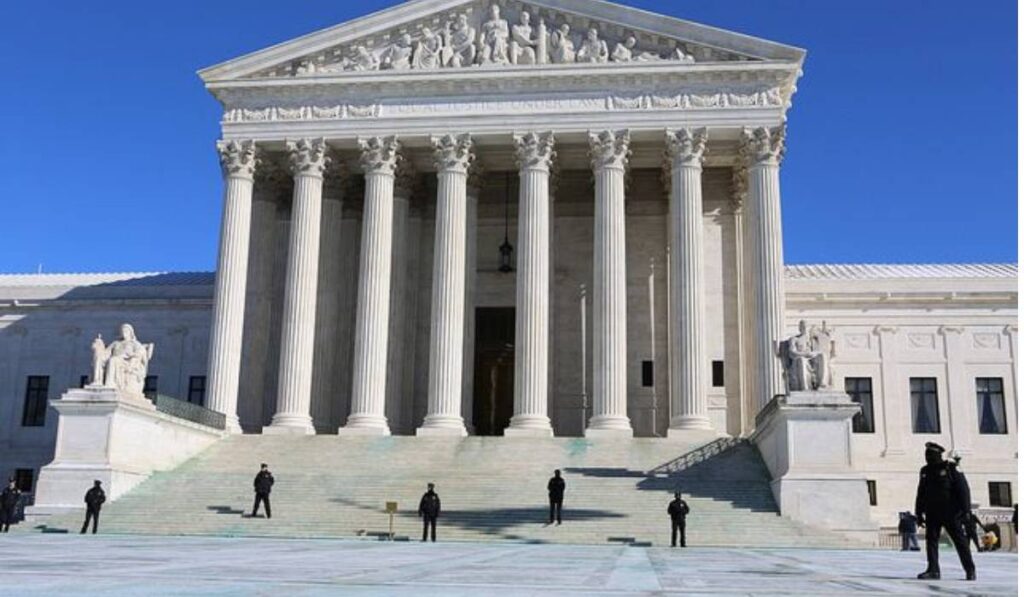
On Tuesday, the Supreme Court declined to consider excluding potential jurors in an employment dispute that involves a lesbian worker because of their religious views on homosexuality.
The court rejected an appeal by Missouri Attorney General Andrew Bailey in a case involving allegations of employment discrimination against the state’s Department of Corrections.
Conservative Justice Samuel Alito agreed with the decision not to take up the case for technical legal reasons. But he said that it raises important issues. Jean Finney, an employee, is the plaintiff in the lawsuit. She sued the department, saying a colleague took action against her after she started dating his former spouse.
During the jury selection process, Finney’s lawyer asked potential jurors if they had traditional religious beliefs or were brought up with the belief that “people that are homosexuals shouldn’t have the same rights as everyone else.”
ALSO READ: US Senator Disapproves of US Assistance to Ukraine at Global Forum
Based on previous Supreme Court decisions, lawyers can exclude potential jurors without stating a reason. However, they can’t do so on the basis of race and gender.
The case largely focuses on two jurors who believe that homosexual activity is a sin. But, the state argues, the jurors also believe that homosexuals should have the same rights as everyone else. The judge ultimately excluded three jurors with conservative Christian beliefs.
Alito wrote that the case highlighted what he views as the negative impact of the Supreme Court’s 2015 ruling that legalized same-sex marriage. He issued a warning then that people would call those who oppose same-sex relationships for religious reasons bigots.
POLL—Should Laws Be Enacted To Protect LGBTQ+ Individuals From Workplace Discrimination?
The Supreme Court was clear that the same-sex marriage ruling should not lead to such interpretations. But, according to Alito, society is not heeding the warning.
The state ultimately lost the case, prompting its lawyers to seek a new trial based on the jury selection process. The Missouri Court of Appeals ruled against the state, and the Missouri Supreme Court declined to hear the case, forcing Bailey to turn to the U.S. Supreme Court.
“The Constitution does not tolerate excluding jurors on the basis of race or sex. It ought not to tolerate exclusion on the basis of religion,” Bailey wrote in the state’s petition. He agrees that jurors can be excluded if their religious views make them biased. But not based on religious status alone.
ALSO READ: Rep Mike Turner Sparks Backlash Over National Security Threat Statement
Finney’s lawyers said in court papers that her sexuality was a key issue in the case. They also said that there was nothing wrong with striking jurors “who had expressed bias against homosexuals.”
You Might Also Like:
Police Confirm One Person Injured From Ann Arbor House Explosion
Megan Fox Shuts Down Xenophobia Accusations Over Super Bowl Photos With Taylor Swift
Residents Flee in Minutes as Volcanic Activity Threatens Homes
Authorities Shoot Armed 16-Year-Old Student in Dallas-Area School
Cougar Attacks Washington Cyclist, Leaving One Woman Hospitalized
